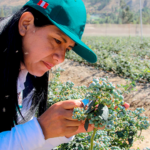Consumers turn away from fruits and vegetables in U.S., Europe

Fruit and vegetable consumption in Western Europe and the United States has been on the decline over the past decade, according to a report by Rabobank. 
Lower income and price increases are cited as partial culprits for the drop. As Rabobank analyst Cindy van Rijswick explained, competition has also been rough from processed foods.
"The challenge for the fruits & vegetables industry is to close the gap between what consumers say they want and what they actually do. Surveys have shown that, in principle, consumers are positive-minded about healthy eating, but in practice they are easily swayed by creative marketing of processed food and beverages and exhibit a strong bias for convenience products," van Rijswick said in the report.
Lower household income had a direct relationship with decreased fruit and vegetable consumption, the study said. Beyond a tight budget, false perceptions about the costs of eating healthy may also have played a role.
"Between 2006 and 2011, in both the EU and US, average consumer prices for fruits & vegetables in fact increased less than prices of the total food category, but consumption levels fell," the study said.
Processed food made for tough competition due to availability, taste, marketing, product range and convenience.
The report made three recommendations for the fresh industry to increase consumption: reduced inconvenience, marketing beyond just health benefits and better cooperation along the supply chain.
For convenience, the study suggested more prepared products, like pre-chopped vegetables ready for cooking. For marketing, it proposed greater focus on convenience, taste, enjoyment and versatility.
As for the supply chain, the report said, "Short dedicated supply chains in which the brand owner is in control can enable partners to work together more closely to improve basic features, such as quality and freshness."
Photo: Peggy Greb, U.S. Department of Agriculture














































